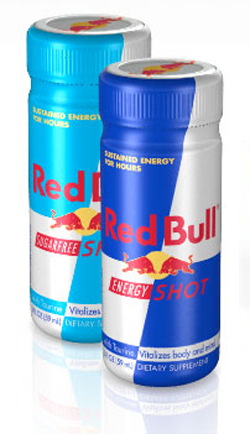By Rachel Berman, RD Director of Nutrition at CalorieCount.com
Just as the new school year is getting underway and students everywhere are looking for a pick-me-up to stay focused in class, the NY State Attorney General announced his investigation of energy drinks and the safety of their caffeine levels. You might remember a couple of years ago when the USDA forced removal of products from the marketplace, such as Four Loko, which added caffeine to alcohol. They deemed it unsafe since caffeine masks the depressant qualities of alcohol and people who mix the two are more likely to binge drink, according to studies.
However, it seems like there’s a new product appearing every week touting its ability to keep you awake and energized. Energy drinks are a billion-dollar industry, the fastest growing segment of the beverage market, and they generally contain caffeine, other plant based supplements, simple sugars and additives to achieve their goal. According to the CDC, about one-third of teenage Americans consume energy drinks. But the problem is that the drinks are considered dietary supplements and therefore aren’t tightly regulated by the FDA like other foods and beverages. So can energy drinks be bad for your health?
Cap the caffeine
The caffeine content listed on energy drinks doesn’t usually exceed the recommended 400 mg per day for adult. However, if you’re downing more than one or mixing with coffee, soda, and other caffeinated beverages, you might be getting more than you need. The FDA recognizes caffeine as a drug and regulates the amount found in carbonated soft drinks, but not in energy drinks. Too much caffeine can cause increased heart beat, interrupted sleep, irritability, and nervousness. In addition, some studies have found that high caffeine content in energy drinks results in irregular heart beat and increased blood pressure. (more…)

